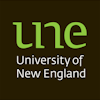|
|
|
|
Welcome back to Books + Ideas for 2025. We are looking forward to another year of excellent reading and writing, and looking back, only slightly ruefully, at the leisurely reading time just passed. I am with our contributor Luke Johnson: the summer break is a great opportunity to catch up with one of those pesky classics that you haven’t quite got around to reading before. This year I went with Vasily Grossman’s sprawling Life and
Fate, a masterpiece of 20th-century Russian literature and one of the great novels of the Second World War.
It has been quite a week to return, with the United States half frozen and half burning, and its president-elect – a man with some interesting parallels to Shakespeare’s Richard III – musing about the possible annexation of Canada and Greenland. In such strange times, a little historical perspective never goes awry. As Darius von Guttner Sporzynski writes, Donald Trump’s seemingly harebrained scheme to purchase Greenland from Denmark
invites a consideration of the long history of colonial claims over the territory, going all the way back to Erik the Red in the 10th century.
We have a rich and varied selection of articles on historical topics this week, ranging from lesbian fashion to a look at the pioneering Australian children’s author and illustrator Louise Anne Meredith. In the wake of the deadly New Year’s Day terrorist attacks in New Orleans, Mia Martin Hobbs has contributed a sobering reflection on US militarism and the rise of extremism. And for anyone who might have missed them, we have also included a few highlights from our summer articles, including an essay on the enigmatic Polish revolutionary Tadeusz Kościuszko (after whom the mountain is named) and an intriguing examination of surviving letters from the ordinary citizens of ancient Greece and the Roman Empire.
It’s not all about the past, though. In a smartly written review of Greg Epstein’s new book Tech Agnostic, Charles Barbour brings a sceptical eye to the curiously religious overtones of contemporary techno-optimism.
Happy reading.
|

|
James Ley
Deputy Books + Ideas Editor
|
|

Darius von Guttner Sporzynski, Australian Catholic University
Donald Trump first flagged buying Greenland, whose colonial history spans centuries, during his first term. Yesterday, he said he wouldn’t rule out military force.
|

Lorinda Cramer, Deakin University
Unsuitable reveals the power of dress to shape the lives of those who wear it – and to challenge, provoke and bring people together along the way.
|

Mia Martin Hobbs, Deakin University
Research indicates significant connections between military service and violent extremism. Though most go on to live peaceful lives, military members and veterans make up around 28% of mass shooters.
|

Charles Barbour, Western Sydney University
The cultures that have grown up around technology dominate the way we understand ourselves, our collective existence, and even our place in the universe.
|

Lauren A. Weber, University of Wollongong; Sara Fernandes, The University of Melbourne
Louise Anne Meredith drew her literary inspiration from the Australian landscape and crafted her own ‘brand’ in its image. May Gibbs, who did the same, began publishing after her death.
|

Konstantine Panegyres, The University of Melbourne
Ancient letters by ordinary Greeks and Romans reveal their everyday triumphs, tragedies and habits.
|

Darius von Guttner Sporzynski, Australian Catholic University
In celebrating the life of Tadeusz Kościuszko, Sharwood invites Australians to reflect on their own values and history.
|
More great reading
|

David Sterling Brown, Trinity College
William Shakespeare’s play ‘Richard III’ illustrates how a power-hungry monarch can attain the throne at the expense of civil society.
| |

Frances Egan, Monash University
Francoise Sagan was just 18 when she published Bonjour Tristesse, her scandalous existentialist novel about a girl who feels too much. Now, it’s been adapted for film for a second time.
|

Carl Rhodes, University of Technology Sydney
Josh Bornstein, the employment lawyer who represents Antoinette Lattouf in her case against the ABC (as well as various union clients), argues that individual liberty is under threat.
| |

Caillan Davenport, Australian National University
On Old Age, the Roman politician, orator, and philosopher Cicero advocates for the dignity and value of growing old. But his is a voice of privilege, which discounts women and the enslaved.
|
|
|
| |
|
|
|
Creative Australia
Sydney NSW, Australia
•
Full Time
|

|
|
|
|
| |
| |

|
| |
| |
| |
Featured Events, Courses & Podcasts
|
View all
|
|
30 January 2025
•
Armidale
|

|
3 February - 6 March 2025
•
Sydney
|

|
4 February 2025
•
Camperdown
|

|
|
|

|
|
|
|
| |
| |
| |
| |
| |
|
|
|
|
|
|
|